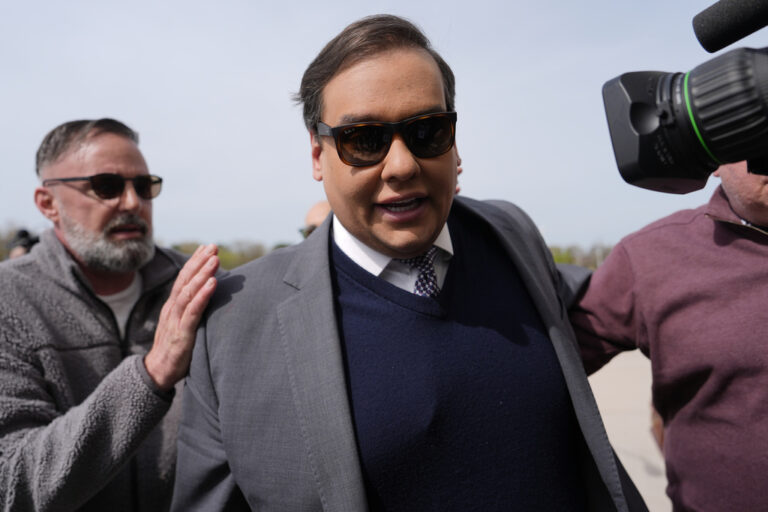Republicans demanded a major say on the Iran nuclear agreement two years ago and never got it from Democrat Barack Obama. Now that President Donald Trump has directed Congress to make the international pact more stringent, the GOP is finding that having that voice won’t be easy.
Republicans will have to win over skeptical Democrats and key allies in Europe who are wary of altering the accord that they believe has prevented Iran from assembling an arsenal of atomic weapons in exchange for lifting economic sanctions. Republican leaders also may face resistance from members of their own party.
Sen. Marco Rubio, R-Fla., a member of the Foreign Relations Committee, said Friday he’ll reserve judgment on any legislation but has “serious doubts about whether it is even possible to fix such a dangerously flawed agreement.”
Trump on Friday angrily accused Iran of violating the spirit of the nuclear deal that was forged with the U.S. and other world powers in 2015, blaming Tehran for a litany of malign behavior and hitting its main military wing with anti-terrorism sanctions. But the president, breaking with a campaign pledge to rip up the agreement, said he was not yet ready to pull the U.S. out or re-impose nuclear sanctions.
Instead he kicked the issue to Congress and told them to toughen the law.
Taking the lead will be the Republican whom Trump has been feuding with — Sen. Bob Corker, R-Tenn., the chairman of the Foreign Relations Committee. Trump belittled Corker this past week with a series of tweets and erroneously blamed the senator, who will retire at the end of next year, for the original Iran deal. Corker dubbed the White House an “adult day care center” and charged that Trump could be setting the nation on the path to world war.
Corker, in a conference call with reporters on Friday, focused on perhaps the most significant task of his chairmanship and didn’t address the bitter back and forth with Trump.
He previewed the main elements of legislation he is developing with Sen. Tom Cotton, R-Ark., a national security hawk who has echoed Trump’s more confrontational approach toward Iran, to toughen the nuclear accord and the law governing U.S. participation in the deal.
“Over the last several months, we have been working closely with the State Department, National Security Council and Senator Cotton to develop a legislative strategy to address bipartisan concerns about the (Iran deal) without violating U.S. commitments,” Corker said in a statement.
On the call, Corker promised an open legislative process.
“You’re going to see all this evolve in daylight,” he said, adding that the bill could be introduced in the next two weeks.
The legislation would amend a two-year-old law that allowed Congress to review the accord. It would reduce from four to two the number of times a year Trump is required to certify to Congress that Iran is complying with the terms of the agreement.
It would also rid the deal of sunset provisions, which expire after predetermined periods of time. The provisions relate to enriching uranium to levels near those needed to produce the fuel for a nuclear weapon, as well as other activities that limit Iran’s atomic capabilities at various sites. The bill would propose a mechanism to automatically restore the prior U.S. sanctions if Iran gets within a year of acquiring a nuclear weapon.
The emerging bill also would give the International Atomic Energy Agency greater power to verify that Iran is complying with the deal.
Senate Majority Leader Mitch McConnell, R-Ky., welcomed Trump’s decision and cast it as an opportunity for Congress to strengthen the law it passed in 2015 and “create a standard for certification that is consistent with our interests.”
Democrats condemned Trump’s announcement and criticized him for punting presidential responsibilities to Congress just as he did on health care and extending protection from deportation for young immigrants known as “Dreamers.”
Sen. Ben Cardin of Maryland, the top ranking Democrat on the Foreign Relations Committee, issued a sharply worded statement that called Trump’s move a “reckless, political decision” that put U.S. national security at risk. He said the president and his Cabinet should be principally in charge of addressing concerns about the Iran deal.
“Instead, he is abdicating his leadership role to Congress, just like with Dreamers and just like with affirming and strengthening our health care system,” said Cardin, who opposed the nuclear deal two years ago but is now opposed to ditching the pact. “It is a troubling pattern. We will not buy into the false premise that it is Congress’ role to legislate solutions to problems of his own making.”
House Minority Leader Nancy Pelosi, D-Calif., called Trump’s move a “grave mistake.”
Without changes, Trump warned, he would probably pull the U.S. out of the deal — which he has called the worst in U.S. history — and snap previously lifted sanctions back into place.
(AP)












One Response
An agreement with a foreign country that is not expressed as a ratified treaty has no legal status to begin with. Consider the US guarantee in 1956 that in return for Israeli withdrawal from Sinai, the US would guarantee Israel against attack – guarantees not part of a treaty, and ignored in 1967.